The 'swift' public inquiry that took nine years to finish
- Published
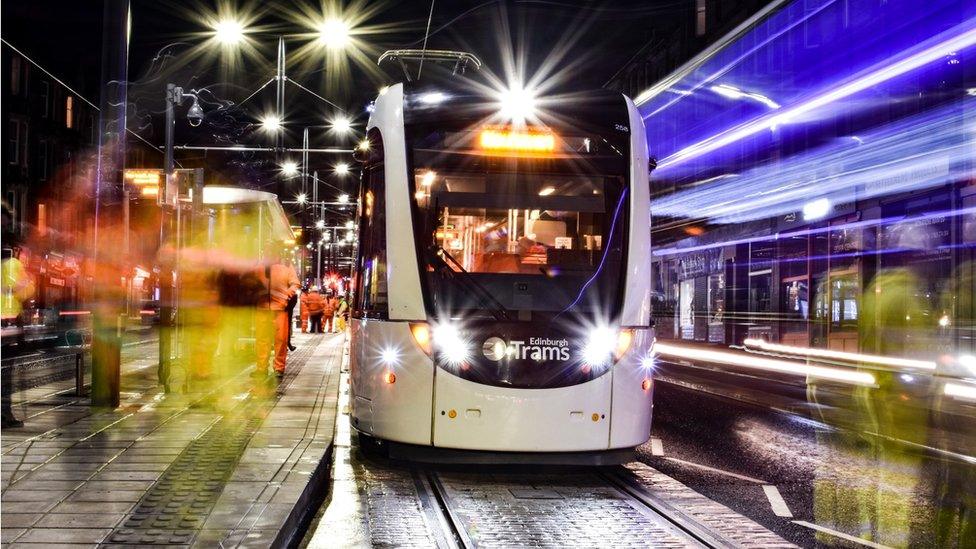
When the man in charge of bringing trams back to Edinburgh quit in 2010 he described the project as "hell on wheels".
It was a sentiment shared in less polite terms by many living in the city during a time when the £835m scheme was at its chaotic worst.
The city's initial lukewarm response to the idea was hardly helped when the project doubled in price and the promised network shrunk in scope to just one line - which missed out one of the city's most densely populated areas.
Eventually, five years later than planned, the 8.7 mile (14km) route from Edinburgh airport to the city centre opened in 2014.
But this wasn't the end of the line for tram-related controversy.
Soon after the trams were running, the then-first minister Alex Salmond promised a "swift and thorough inquiry" into what wrong and what could be done to avoid a repeat in future projects.
Nine years later the inquiry has certainly not been "swift" but now it has finally published a verdict can be reached on whether it was "thorough".
However, the length of time it has taken to get to this stage, and the fact that its £13m price tag is more than the cost of the Chilcot inquiry into the 2003 UK invasion of Iraq, will cast a long shadow over these findings.
Why has the inquiry taken so long?
In the time it has taken Lord Hardie's inquiry to work out what went wrong with the disastrous first tram project, Edinburgh has agreed, designed and built a £207m extension from Picardy Place to Newhaven, which began taking passengers on 7 June.
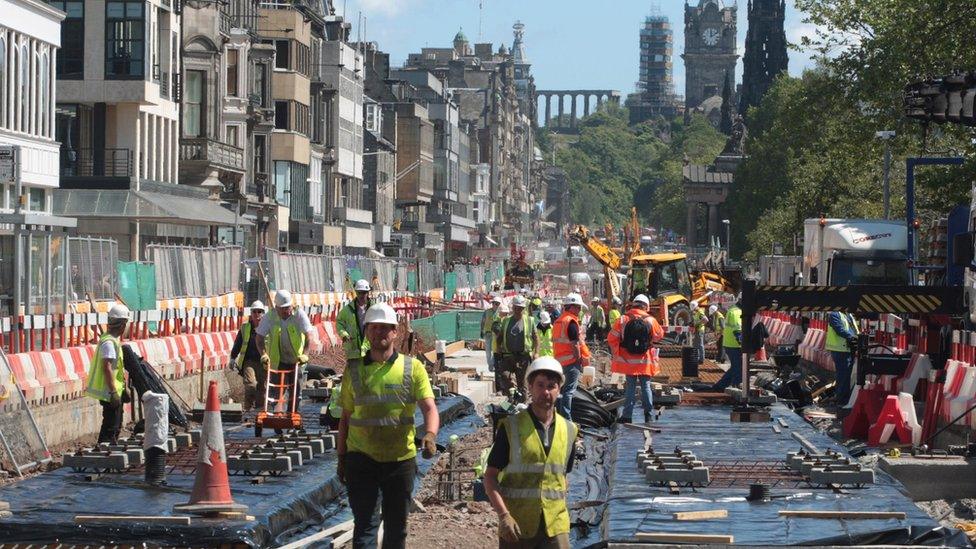
Princes Street in the heart of Edinburgh was ripped up to make way for the new tram line
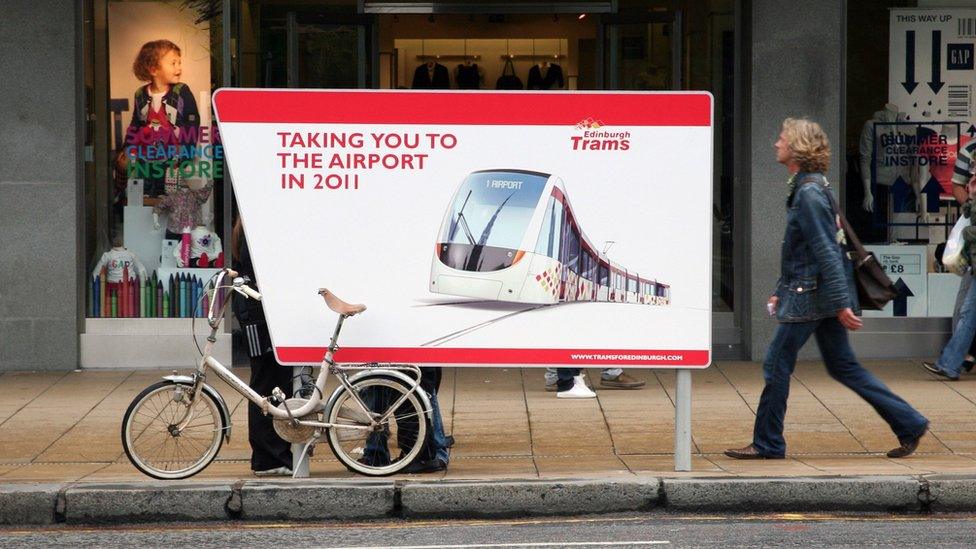
Signs like this one were in place around Edinburgh until the autumn of 2010 when they were removed by project officials "until a more definitive timetable has been agreed"
The good news for taxpayers is this 2.9-mile extension - which was part of the original route and then dropped to save money - was built on time and on budget so is unlikely to require a public inquiry.
But the extension also benefited from being much less complicated than the original project.
The complexity of the original tram construction scheme cannot be underestimated and this was the genesis of the "hell on wheels" comments from former project chairman David Mackay.
A dense inquiry process, with its own migraine-inducing complexity at points, inched along over the years with more than three million documents submitted by the multiple public and private bodies involved.
And the inquiry has also had its own setbacks over the years.
Resistance from individuals and organisations at the start meant the inquiry had to be made statutory in order to compel production of evidence and the participation of witnesses.
There was also a break-in at its offices in 2015 and then the first public hearing was postponed when Lord Hardie was taken ill, before the Covid pandemic delayed things further.
Where the tram project went wrong
Lord Hardie's public inquiry concluded that a "litany of avoidable failures" was to blame for the delayed tram project.
Much of his criticism in the 961-page report centres on the arms-length company in charge of the tram project known as Tie.
But he added that the City of Edinburgh Council "must also share principal responsibility with Tie for the delays in design".
The inquiry chairman also said that the Scottish government "recognised their mistake in withdrawing the oversight of Transport Scotland officials designed to protect the public purse" when problems emerged with the project.
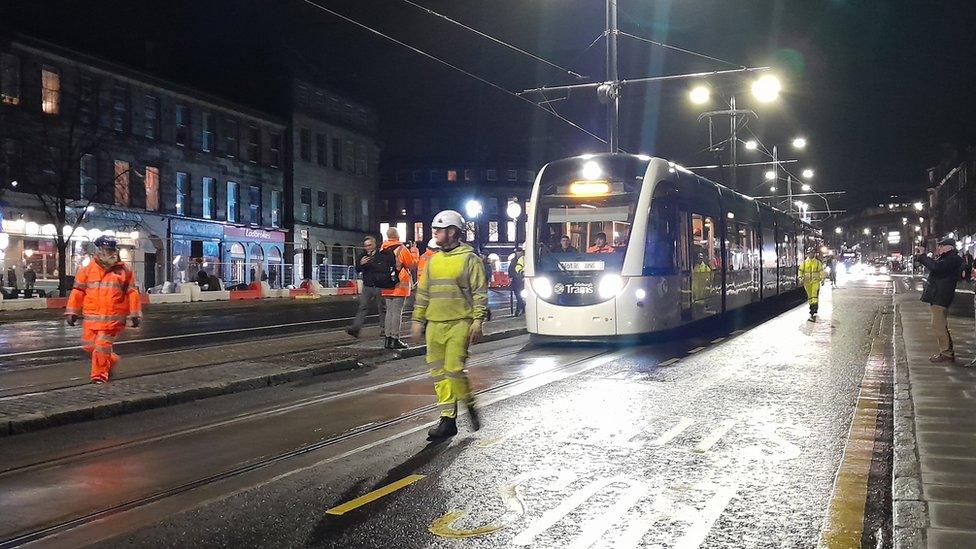
The trams travelled at a walking pace during a trial of the extension to Newhaven
Delving deeper into the findings produces a number of points made by Lord Hardie that stand out:
The reported cost of the project is much more than the £776.7m previously reported. Taking into account other works undertaken by the council, but not attributed the tram project, it has risen to £835.7m. However, the cost of borrowing on the £246.5m loan needed to complete the project will take the final lifetime costs closer to £1bn.
Had the increased costs of the project been known before it was given final approval, Lord Hardie concludes the "City of Edinburgh Council could not have justified proceeding with the project and the Scottish ministers could not have justified payment of the grant of £500m towards its funding".
The culture within Tie's senior management prior to signing the deal was one of "resentment of any challenge to, or perceived interference in, their role of procuring and managing the project" with officials from the council colloquially known as "the B team".
The report reveals that Tie boss Willie Gallagher submitted a paper at Tie's remuneration committee in 2006 suggesting that executive directors and other senior managers be entitled to an annual bonus opportunity of 50% of salary. He did not attend the meeting which considered his own bonus but the plan was adopted before later being ditched when the project hit difficulties. Lord Hardie said Mr Gallagher's actions were "inappropriate and contrary to good governance".
Lord Hardie suggests the Scottish government taking a less hands-on role in the project "amounted to an abdication of responsibility for ensuring that public funds provided by Scottish ministers for a specific project were spent wisely".
Former tram boss Willie Gallagher was "not a satisfactory witness" according to Lord Hardie, who said it was difficult to accept that his unsatisfactory answers were truly the result of poor recollection of events and rather "there were instances where it appeared that he was fabricating evidence or was not being candid in his responses".
Neil Renilson, who was chief executive of the public body that runs bus and tram services in Edinburgh until 2009, told BBC Scotland having multiple contracts in place for the work as when the "wheels really fell off" the project.
He said: "It was incredibly counterproductive, instead of getting on and building a tramway everyone was busy fighting among themselves.
"We now have world-class tramway, was it value for money? - certainly not.
"We could have had three general hospitals anywhere in Scotland for the price for an Edinburgh tram line."
Related topics
- Published19 September 2023
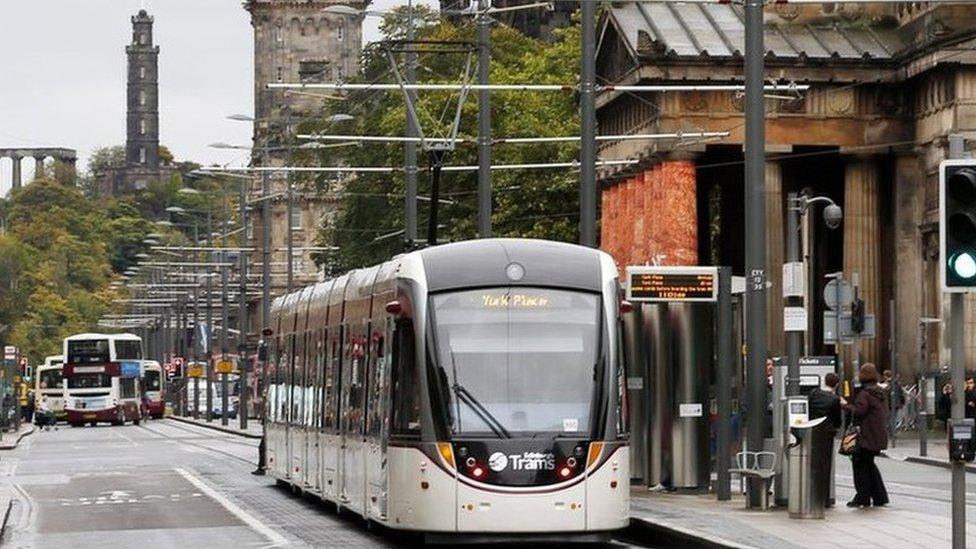
- Published10 May 2023
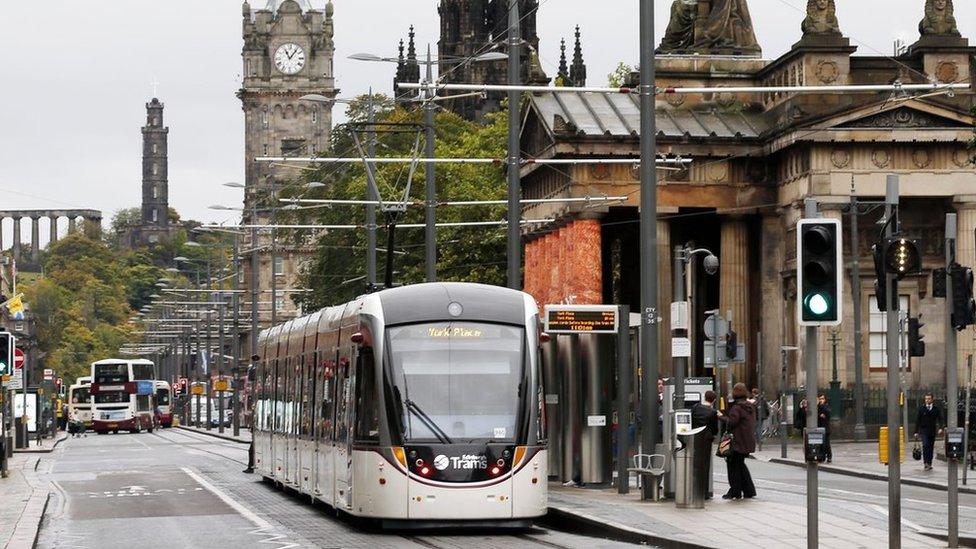
- Published22 June 2023
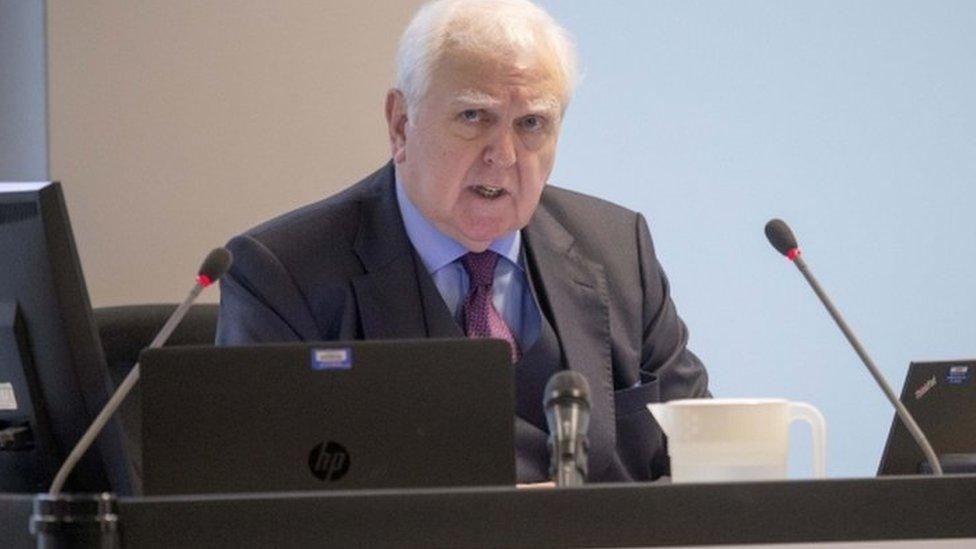
- Published15 March 2018
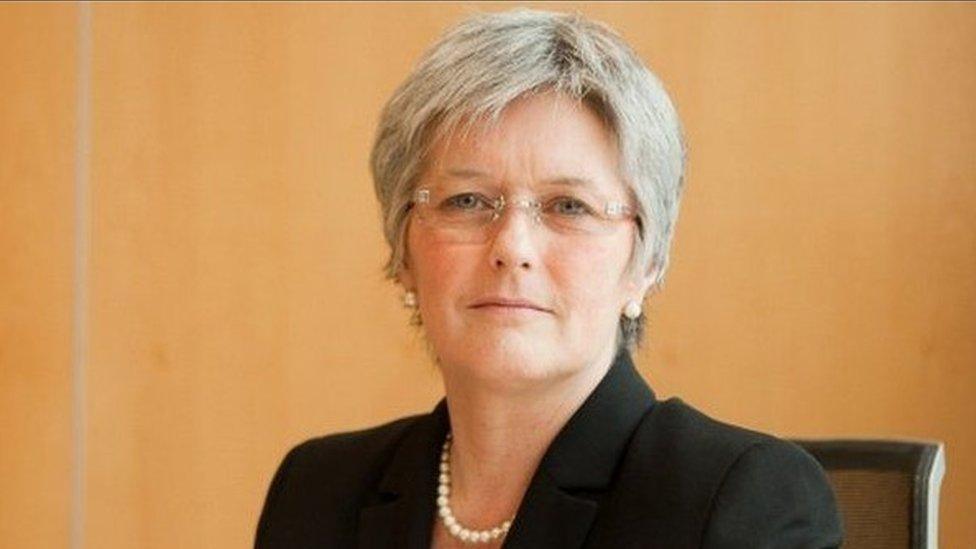
- Published23 May 2018
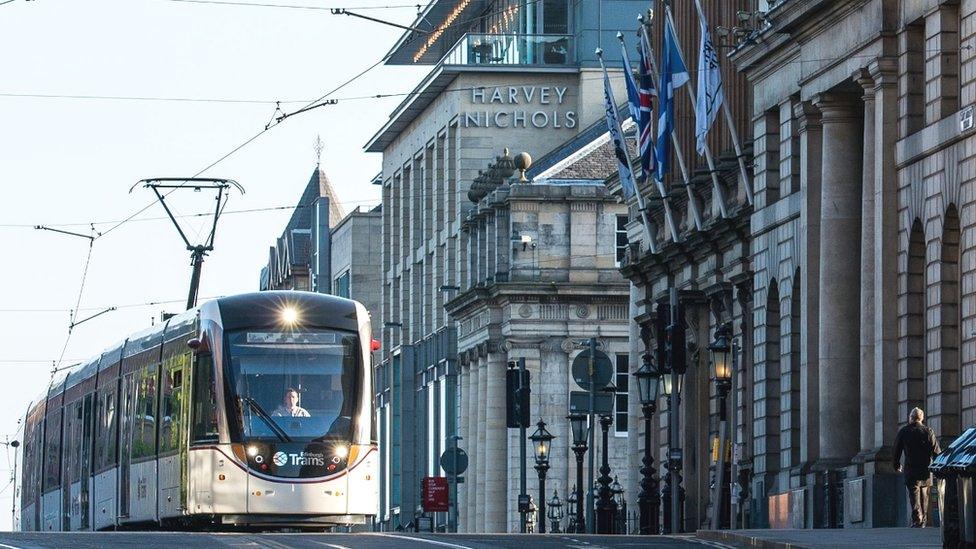
- Published25 May 2023
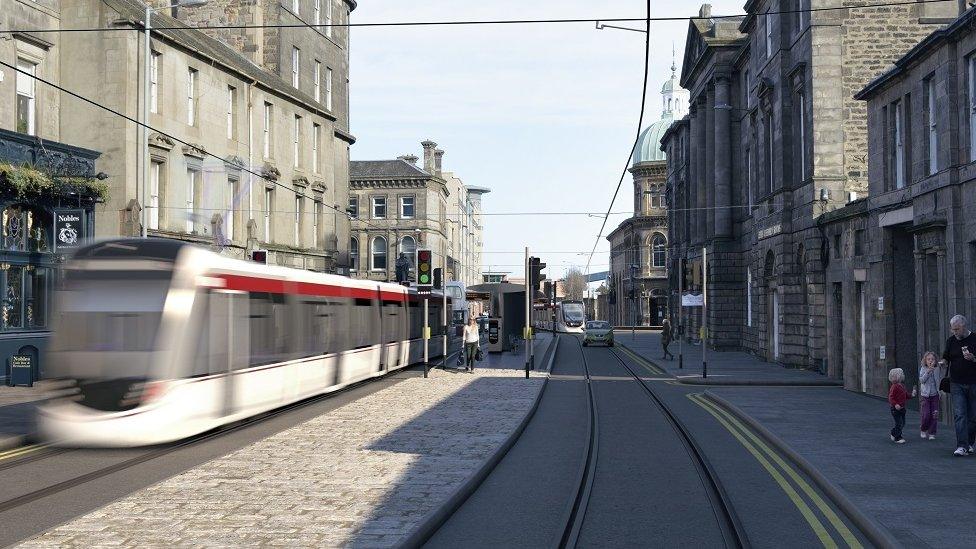
- Published23 January 2018
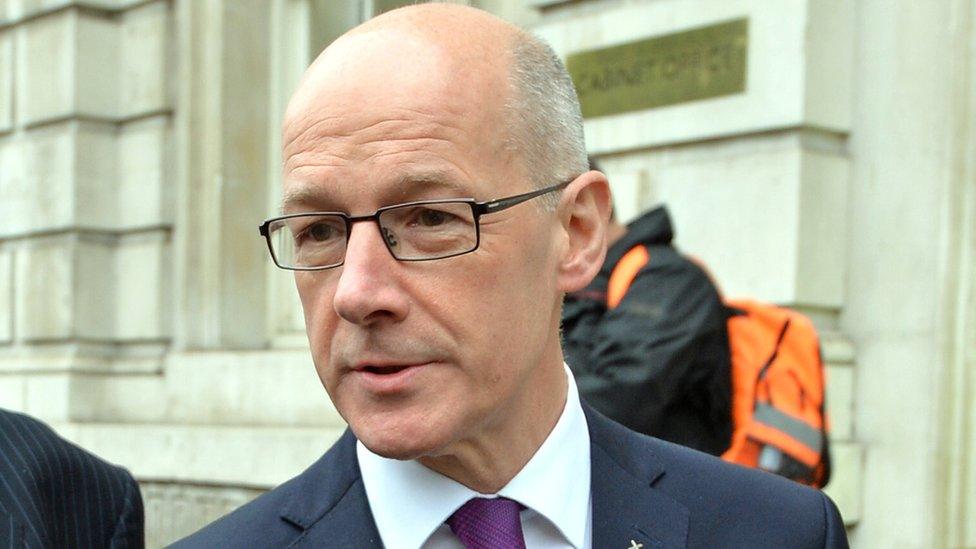
- Published30 January 2015
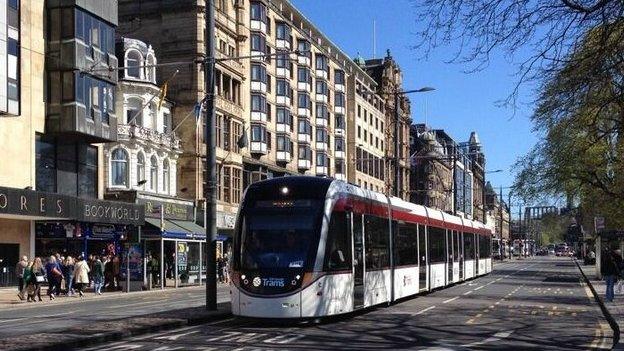
- Published30 August 2022
